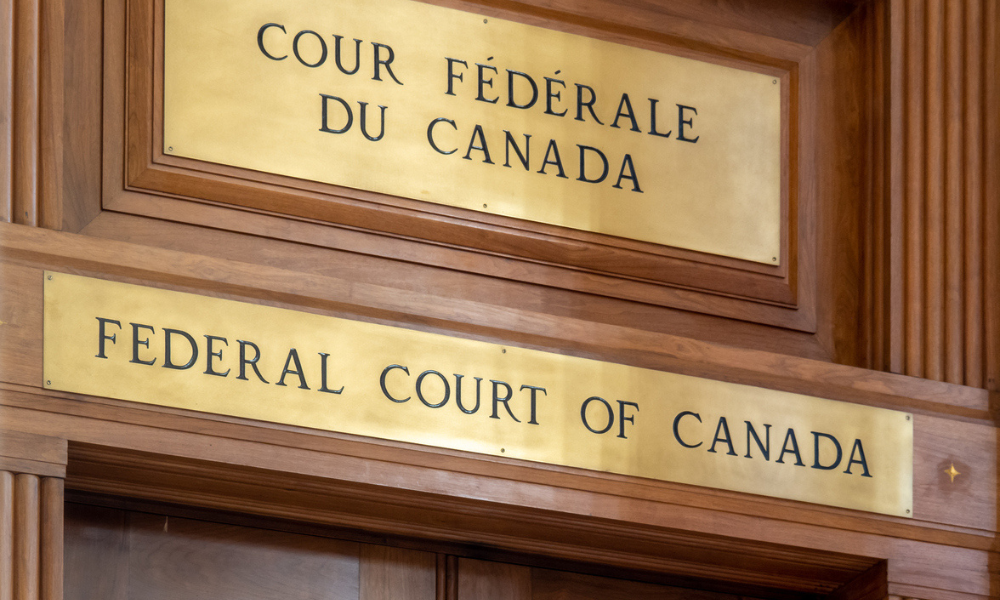
The councillors challenged the chief’s decision to convene a meeting

In a recent ruling, the Federal Court upheld the reinstatement of the Chief of Salt River First Nation in a governance-related dispute.
The dispute in Heron v. Salt River First Nation No. 195, 2024 FC 413, concerns the governance of the Salt River First Nation No. 195 (SRFN). Chief Cecilia (Toni) Josephine Heron emerged victorious in a consolidated judicial review that scrutinized her suspension and challenged her authority to call a special meeting to remove councillors from office.
In its ruling, the court dismissed SRFN's application against Chief Heron's decision to convene a special meeting for the removal of Councillors Brad Laviolette and Kendra Bourke, citing the application as premature and non-compliant with the First Nation's Election Code requirement for membership approval. Conversely, the court allowed Chief Heron's separate judicial review, contesting her suspension and seeking reinstatement with back pay, on the grounds of procedural unfairness and the unreasonable nature of the suspension decisions.
This dispute began shortly after Chief Heron's September 19, 2022 election. SRFN held the swearing-in ceremony for the chief and council, and a council meeting occurred afterward. At a council meeting in October, a letter signed by all councillors, except Chief Heron’s grandson, was circulated and added to the agenda. The letter contained eight motions that were ultimately passed by the council, including a motion to approve SRFN’s fire centre bid and a motion not to have a membership meeting regarding the bid. This letter and the proposed motions removed some responsibilities from the chief. Chief Heron took issue with and disputed the inflammatory language in the letter, including that she was not fulfilling her duty as chief.
Chief Heron wrote letters to councillors Bourke and Laviolette advising them that she was calling a special meeting to remove them from office due to their conduct at the October meeting. Councillors Bourke and Laviolette stated that the council provided Chief Heron with a letter disputing her authority to call the special meeting and that the councillors would consider suspending Chief Heron. The councillors elevated the matter to the Federal Court through an application for judicial review.
The Federal Court noted that the SRFN’s application for judicial review is premature and that the SRFN did not properly seek the approval of its membership to bring the SRFN application, as required in the Election Code.
Chief Heron argued that judicial review is discretionary and “absent exceptional circumstances, Courts should not interfere with ongoing administrative processes until after they are completed, or until the available, effective remedies are exhausted.” Furthermore, she also argued that judicial intervention in Indigenous decision-making processes should be avoided whenever possible to encourage Indigenous self-government.
The court agreed with Chief Heron, finding that many objections to removing Councillors Laviolette and Bourke could have been raised at the special meeting rather than by prematurely applying for judicial review. The court noted that the process only began when Chief Heron called the special meeting, and the process has not been completed. At this initial step in the process, there were no consequences to councillors Laviolette and Bourke, as SRFN’s membership had not yet voted on the matter at the special meeting.
The court also criticized the suspension process for lacking procedural fairness, particularly highlighting the absence of an opportunity for Chief Heron to respond to allegations against her and the presence of a reasonable apprehension of bias on the part of councillors Laviolette and Bourke. The court emphasized that a duty of fairness is owed in respect of a discipline proceeding of an elected chief or councillor, which includes a right to an impartial decision-making body.
Ultimately, the Federal Court dismissed the SFRN’s application for judicial review for being premature and because the SRFN did not follow its Election Conde in bringing its application forward.